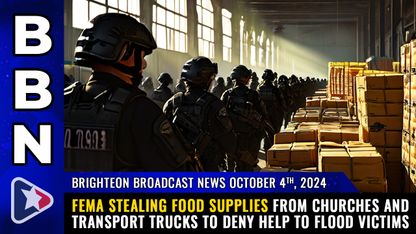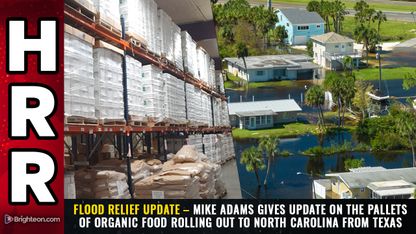
The World Meteorological Organization (WMO) warned Tuesday, July 2, that Hurricane Beryl has become a Category 5 storm and is setting the tone for a "very dangerous" hurricane season.
Hurricane Beryl tore through Grenada and Saint Vincent and the Grenadines in the Caribbean. The aftermath of the hurricane left households without power and is predicted to hit Jamaica by July 4 and the Cayman Islands later in July.
Clare Nullis, a WMO spokesperson, told reporters in Geneva that Hurricane Beryl is "the earliest Category 5 hurricane on record in the Atlantic, Caribbean and Central American basin."
According to the five-step Saffir-Simpson Hurricane Wind Scale, a Category 5 hurricane brings 157 miles per hour (mph) winds or higher. It can also cause widespread damage, such as the destruction of homes and infrastructure.
Hurricane Beryl was also the earliest Category 4 Atlantic hurricane, overtaking Hurricane Dennis, which became a Category 4 storm on July 8, 2005. Beryl then became the earliest Category 5 observed in the Atlantic basin on record.
The National Hurricane Center (NHC) said Hurricane Beryl was only the second Category 5 hurricane in July after Hurricane Emily in 2005.
Nullis advised that affected areas must keep in mind that it takes only one landfalling hurricane "to set back years of socio-economic development." She added that the WMO is also concerned about how Hurricane Beryl will affect very small islands in the Caribbean that are not used to a Category 5 hurricane.
Anne-Claire Fontaine, scientific officer for the WMO Tropical Cyclone Program, explained that Hurricane Beryl could be developing this early in the season due to factors such as warmer ocean temperatures. Shed added that the Main Development Region (MDR), which refers to the place in the ocean where the hurricanes are developing, is the warmest it has ever been. (Related: Experts claim 2024 Atlantic hurricane season could be one of the most active ever (but they always say that).)
Human knowledge is under attack! Governments and powerful corporations are using censorship to wipe out humanity's knowledge base about nutrition, herbs, self-reliance, natural immunity, food production, preparedness and much more. We are preserving human knowledge using AI technology while building the infrastructure of human freedom. Speak freely without censorship at the new decentralized, blockchain-power Brighteon.io. Explore our free, downloadable generative AI tools at Brighteon.AI. Support our efforts to build the infrastructure of human freedom by shopping at HealthRangerStore.com, featuring lab-tested, certified organic, non-GMO foods and nutritional solutions.
Hurricane Beryl has 22 confirmed fatalities so far
As of July 4, a total of 22 fatalities have been confirmed due to Hurricane Beryl. Two have been killed in Jamaica, seven in Grenada and 10 in Venezuela.
Grenadian Prime Minister Dickon Mitchell reported that he is still unable to confirm if there were even more fatalities in his small nation of 120,000 because authorities have yet to assess the situation on the islands of Carriacou and Petite Martinique, where there were initial reports of major damage. Communications were still largely down in these areas.
Mitchell added that they hope there aren't any other other fatalities or any injuries. He also said that the government will send people to help evaluate the situation on the islands.
After Hurricane Beryl passed, many streets from St. Lucia island south of Grenada were full of shoes, trees, downed power lines and other debris. The strong winds snapped banana trees in half and left cows dead in green pastures.
Vichelle Clark King, a shop owner in the Barbadian capital of Bridgetown, shared that she was "heartbroken" as she looked at her damaged shop filled with sand and water.
As of July 1, Hurricane Beryl was still in the southeast Caribbean and was on a track heading just south of Jamaica and toward Mexico's Yucatan Peninsula by July 4 as a Category 1 storm.
Hurricane Beryl then reached Category 5 strength late July 1 and intensified further early morning on July 2 to 165 mph winds.
Fluctuations were possible, but Hurricane Beryl was expected to stay near major hurricane intensity as it moved into the central Caribbean and passed near Jamaica, reported the NHC. After that, significant weakening was expected.
The last strong hurricane to hit the southeast Caribbean was Hurricane Ivan, which killed dozens of people in Grenada 20 years ago.
Terence Walters, Grenada's national disaster coordinator, said that on July 1, officials received "reports of devastation" from Carriacou and surrounding islands.
Mitchell said he would travel to Carriacou as soon as it was safe. He added that Grenada officials had to evacuate patients to a lower floor after the hospital roof was damaged because of Hurricane Beryl.
Mitchell told reporters that there was a chance of "even greater damage."
Hurricane Beryl is the second named storm in the Atlantic hurricane season, which runs from June 1 to Nov. 30. In June, Tropical Storm Alberto made landfall near Tampico, Mexico. Three deaths, including two children, were linked to the season's first named storm.
The National Oceanic and Atmospheric Administration warned that the 2024 hurricane season could likely be well above average, with between 17 and 25 named storms. The forecast called for at least 13 hurricanes and four major hurricanes.
The average Atlantic hurricane season produces at least 14 named storms, including seven hurricanes and three major hurricanes.
Visit Disaster.news to read more stories about man-made and natural disasters.
Watch the video below to learn more about Category 5 Hurricane Beryl.
This video is from the Evolutionary Energy Arts channel on Brighteon.com.
More related stories:
Emergency preparedness: Designing a natural disaster-proof home.
Sources include:
Please contact us for more information.















